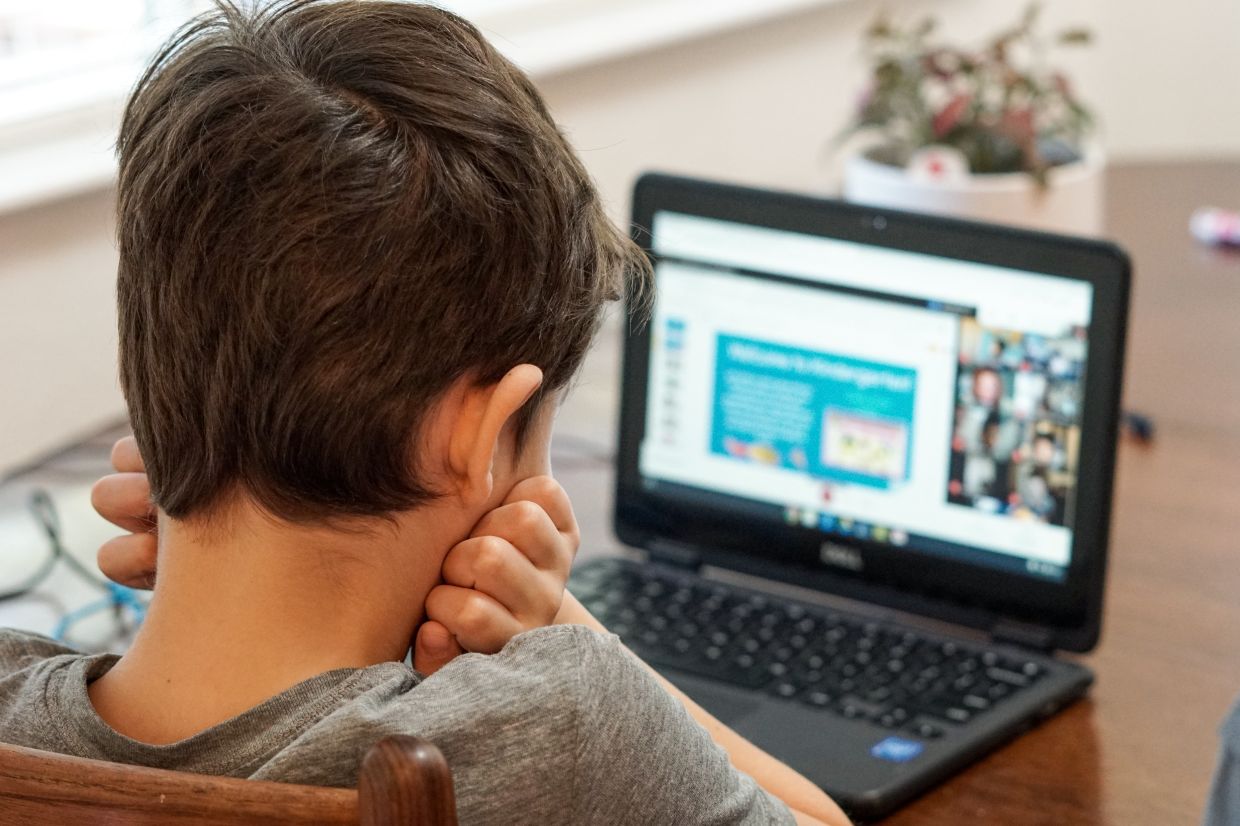10 Best Strategies for Parents Battling Depression
As a parent battling depression, prioritize self-care by joining support groups, practicing daily affirmations, and incorporating relaxation techniques. Seek professional therapy for guidance and explore physical activities to uplift your mood. Embrace mindfulness and set achievable goals while maintaining a healthy diet and sleep routine. Find joy in hobbies and communicate openly with loved ones for support. These strategies provide a roadmap to improve mental well-being.
Key Takeaways
- Join parent support groups for community and understanding.
- Prioritize self-care routines for mental well-being.
- Seek professional therapy or counseling for support.
- Engage in physical activity to improve mood.
- Practice mindfulness and meditation for emotional balance.
Establishing a Support Network

To navigate the challenges of battling depression as a parent, the first step is to establish a strong support network. Building relationships and joining groups can provide a sense of community and understanding. It’s essential to find support by connecting with others who may be experiencing similar struggles. When you feel overwhelmed, having a support network can offer comfort and encouragement.
Joining parent support groups or online communities can be beneficial in finding individuals who can relate to your experiences. These groups often provide a safe space to share your feelings and receive advice from those who understand what you’re going through.
Additionally, reaching out to friends, family members, or a therapist can also expand your support network.
Prioritizing Self-Care Routines
Establishing a strong support network is vital for managing depression as a parent.
Now, let’s focus on prioritizing self-care routines to make sure you’re taking care of yourself amidst the challenges you face.
Daily affirmations can help boost your self-esteem and provide a positive outlook.
Incorporating relaxation techniques such as deep breathing or meditation can greatly reduce stress levels.
Effective time management is important in carving out moments for self-care.
Prioritize activities that bring you joy and relaxation, even if it’s just for a few minutes each day.
Remember, self-care isn’t selfish; it’s necessary for your well-being and for being the best parent you can be.
Setting boundaries and learning to say no when needed is also part of self-care prioritization.
Seeking Professional Therapy or Counseling

Seeking professional therapy or counseling can provide valuable support and guidance for parents battling depression.
Whether through group therapy sessions where you can connect with others facing similar challenges or individual counseling tailored to your specific needs, therapy offers a safe space to explore your emotions and develop coping strategies.
With the rise of online therapy and telehealth options, accessing mental health support has become more convenient. These platforms allow you to attend therapy sessions from the comfort of your home, eliminating barriers such as transportation or scheduling conflicts.
In therapy, you can work through feelings of guilt, stress, and overwhelm that often accompany parenting while dealing with depression. A therapist can help you develop tools to manage these emotions effectively.
Through regular sessions, you can gain a better understanding of your triggers and learn healthier ways to navigate them. Remember, seeking help is a sign of strength, and taking this step can positively impact both your well-being and your ability to parent effectively.
Engaging in Physical Activity
Hey there, struggling with depression as a parent is tough, but engaging in physical activity can make a real difference. Moving your body releases endorphins that can boost your mood and energy levels.
Let’s explore the importance of exercise, various types of physical activities, and some tips to help you get active.
Importance of Exercise
Engaging in regular physical activity has been shown to greatly improve mood and reduce symptoms of depression for parents battling this challenging mental health condition.
Group fitness classes can be a fantastic way to not only get moving but also connect with others who may be experiencing similar struggles. The camaraderie and support found in group fitness settings can provide a sense of community and motivation to keep up with your exercise routine.
Outdoor walks, especially in natural settings like parks or trails, offer a double benefit. The combination of physical activity and exposure to nature has been proven to enhance mood and reduce stress.
Taking a walk outdoors can offer a peaceful escape from the demands of parenting and daily life, allowing you to focus on yourself and your well-being.
Types of Physical Activities
To maintain your mental well-being and combat depression, it’s essential to explore various types of physical activities that suit your preferences and lifestyle.
Engaging in group fitness classes can be a fantastic way to stay active while also connecting with others who share similar goals. The camaraderie and support found in group fitness settings can uplift your spirits and provide a sense of community during challenging times.
Outdoor adventures offer another exhilarating avenue for physical activity. Whether it’s hiking through scenic trails, biking in nature, or even trying out water sports, the great outdoors can invigorate both your body and mind. The fresh air, sunshine, and natural surroundings can work wonders in boosting your mood and reducing feelings of stress and anxiety.
Tips for Getting Active
Encouraging yourself to incorporate physical activity into your daily routine can greatly benefit your mental health and help combat the effects of depression.
One effective tip is to engage in outdoor adventures. Nature has a calming effect on the mind and body, making activities like hiking, biking, or simply going for a walk in the park incredibly beneficial for your mental well-being. The fresh air and sunlight can uplift your mood and provide a much-needed escape from the daily stressors.
Another helpful strategy is to participate in group fitness activities. Joining a fitness class or a sports team can’t only motivate you to stay active but also provide a sense of community and support. Exercising with others can boost your morale and make the experience more enjoyable.
Additionally, group fitness sessions often offer a structured routine, which can be especially beneficial for individuals struggling with depression, providing a sense of purpose and accomplishment.
Practicing Mindfulness and Meditation

Practicing mindfulness and meditation can provide valuable tools for parents struggling with depression, helping to cultivate a sense of peace and clarity amidst daily challenges.
Mindfulness exercises, such as deep breathing or body scan techniques, can assist in grounding you in the present moment, reducing anxiety and stress. Taking just a few minutes each day to focus on your breath or sensations in your body can make a significant difference in how you navigate difficult emotions.
Incorporating meditation into your routine offers a range of benefits, from improving emotional well-being to enhancing self-awareness. Engaging in a daily meditation practice can help quiet the mind, promote relaxation, and foster a greater sense of compassion towards yourself and others.
Whether you choose guided meditation sessions, silent meditation, or mindfulness apps, finding a method that resonates with you is key to sustaining a consistent practice.
Setting Realistic Goals and Boundaries
Setting realistic goals and boundaries is vital in managing your mental health as a parent battling depression. By establishing clear objectives and healthy limits, you can create a sense of structure and accomplishment in your daily life.
Clear Goal Setting
To navigate through the challenges of battling depression as a parent, it’s vital to establish clear and realistic goals and boundaries. Setting achievable objectives can provide a sense of direction and purpose, aiding in managing symptoms and improving overall well-being.
Begin by journaling progress regularly to track milestones and celebrate achievements, no matter how small they may seem. Recognizing your progress and accomplishments can boost your motivation and self-esteem, reinforcing positivity in your journey towards better mental health.
It is essential to adjust expectations as needed, understanding that some days will be more challenging than others. Be kind to yourself and remember that progress isn’t always linear. By setting boundaries and clearly defining what you can manage, you prevent overwhelming yourself and minimize stress.
Embrace the process of setting realistic goals, allowing yourself the flexibility to adapt and grow along the way. Remember, each step forward, no matter how small, is a significant achievement in your battle against depression.
Healthy Limits Established
Establishing healthy limits by setting realistic goals and boundaries is key to managing the challenges of battling depression as a parent.
Boundary setting is essential for your well-being. Be gentle with yourself, and remember that it’s okay to say no when you feel overwhelmed.
Prioritize self-care by carving out time for activities that bring you joy and relaxation. Healthy relationships play an important role in your journey towards better mental health.
Surround yourself with supportive and understanding individuals who uplift you.
Finding balance is necessary. Aim to allocate time for your children, work, and personal needs. Remember, you aren’t alone in this struggle, and seeking help is a sign of strength, not weakness.
Communicate openly with your loved ones about your boundaries and needs. Establishing healthy limits is an ongoing process, so be patient with yourself as you navigate this path.
Maintaining a Healthy Diet and Sleep Schedule

Ensuring you prioritize a well-rounded diet and consistent sleep routine can greatly impact your mental well-being when battling depression. Meal planning plays an essential role in maintaining a healthy diet. By preparing nutritious meals in advance, you can make sure you’re fueling your body with the necessary nutrients for peak brain function.
Incorporating relaxation techniques such as deep breathing exercises or mindfulness practices during meal times can also help reduce stress and improve digestion.
When it comes to your sleep schedule, establishing a bedtime routine is vital. Going to bed and waking up at the same time each day can regulate your body’s internal clock, promoting better sleep quality. Make sure your bedtime routine includes activities that promote relaxation, such as reading a book or taking a warm bath.
Additionally, focusing on nutritional balance throughout the day can help stabilize your mood and energy levels, contributing to a more positive outlook on life. By prioritizing a healthy diet and sleep routine, you’re taking proactive steps towards improving your mental well-being amidst the challenges of battling depression.
Finding Joy in Hobbies and Activities
It’s vital to remember the things that bring you joy amidst the challenges of battling depression.
Exploring creative outlets and engaging in leisure activities can help you find moments of peace and happiness.
Taking time for yourself and immersing in activities you love can be a powerful tool in your journey towards healing.
Explore Creative Outlets
Engaging in creative outlets like hobbies and activities can be a powerful way to find joy and relief while battling depression as a parent. Art therapy, journaling, music therapy, and photography are wonderful avenues to explore.
Art therapy allows you to express your emotions through various art forms, providing a therapeutic release.
Journaling can help you process your thoughts and feelings, offering a sense of clarity and understanding.
Music therapy has a unique way of soothing the soul and lifting your spirits during challenging times.
Photography enables you to capture moments of beauty and find inspiration in the world around you.
These creative outlets can serve as a form of self-care, allowing you to focus on activities that bring you happiness and fulfillment. Whether it’s painting, writing, playing an instrument, or taking photos, immersing yourself in these activities can offer a much-needed escape from the struggles of depression.
Embrace these creative outlets as tools to nourish your soul and cultivate moments of joy in your life as a parent facing depression.
Engage in Leisure Activities
Consider incorporating leisure activities and hobbies into your routine as a way to find joy and relaxation amidst the challenges of battling depression as a parent.
Engaging in activities like art therapy or joining yoga classes can provide a much-needed outlet for self-expression and stress relief. Art therapy allows you to explore your emotions in a creative way, while yoga classes promote mindfulness and physical well-being.
Nature walks are another excellent way to connect with the outdoors and clear your mind. The beauty of nature can have a calming effect on your mental state, helping to alleviate some of the symptoms of depression.
Additionally, consider taking cooking classes to not only learn a new skill but also to find enjoyment in the process of creating something delicious.
Communicating Openly With Loved Ones

Effectively communicating openly with loved ones is essential when battling depression, as it can help build a strong support system and foster understanding within your relationships.
In the complex dynamics of family relationships, open communication plays a pivotal role in maneuvering the challenges that come with depression. When it comes to parent-child relationships, having honest discussions about your feelings and struggles can create a safe space for both parties to express themselves without judgment.
During these conversations, it’s vital to listen actively and empathetically to each other’s perspectives. Sharing your experiences and emotions openly can strengthen the bond between you and your loved ones, providing mutual support during difficult times.
Remember that communication is a two-way street, so encourage your children to express their thoughts and feelings as well.
Exploring Medication Options With a Healthcare Provider
When maneuvering your journey through battling depression, it may be valuable to discuss exploring medication options with a healthcare provider to support your mental health needs effectively. Medication management can be an important component in treating depression, as certain medications can help regulate brain chemicals that affect mood. Your healthcare provider can assess your symptoms, medical history, and individual needs to determine the most suitable medication for you. It’s important to have an open dialogue with your provider about any concerns or questions you may have regarding medication, including potential side effects.
While medication can be beneficial for many individuals, it’s also essential to explore alternative treatments and natural remedies. Some people find relief through therapies such as mindfulness, exercise, or dietary changes. These approaches can complement medication or be used as standalone treatments, depending on your preferences and needs.
Ultimately, the goal is to find a holistic treatment plan that works best for you and supports your journey towards improved mental well-being.
Frequently Asked Questions
How Can Parents Manage Their Depression Without Feeling Guilty?
You can manage depression without guilt by using coping mechanisms and building support systems. Remember, taking care of your mental health is essential for both you and your family. Seek help, prioritize self-care, and know you’re not alone.
What Are Some Unique Self-Care Routines for Parents With Depression?
To care for yourself as a parent with depression, try mindful meditation for inner peace, journaling to express emotions, engaging in creative hobbies for joy, and taking nature walks for fresh air and mental clarity.
Is It Normal for Parents to Feel Overwhelmed When Seeking Therapy?
It’s absolutely normal to feel overwhelmed when starting therapy as a parent. Your therapy experiences may be intense, but remember to prioritize self-care and use coping mechanisms. Overcoming guilt and seeking support are essential steps in your healing journey.
Can Physical Activity Worsen Depression Symptoms for Some Parents?
When dealing with depression, exercise precautions are essential. While physical activity can be effective in managing symptoms for many parents, it’s important to find a balance that supports your mental health without worsening your condition.
How Can Parents Navigate Discussing Medication Options With Their Children?
When it comes to discussing medication options with your children, it’s essential to involve them in the conversation. Open communication about mental health is key. Address their concerns, provide information, and reassure them of your support throughout the process.
Conclusion
Remember, as a parent battling depression, it’s important to prioritize your own well-being in order to better care for your children.
By establishing a support network, practicing self-care, seeking therapy, staying active, and exploring all available options, you’re taking positive steps towards managing your mental health.
Remember, you aren’t alone in this journey, and with the right strategies and support, you can overcome the challenges of depression and be the best parent you can be.
Stay strong, and never hesitate to reach out for help.

Hey there! 👋 I’m a proud mom and passionate writer, sharing my parenting journey. 📝 Join me as I navigate the ups and downs of motherhood, offering tips, advice, and a sprinkle of humor along the way. 🌟







